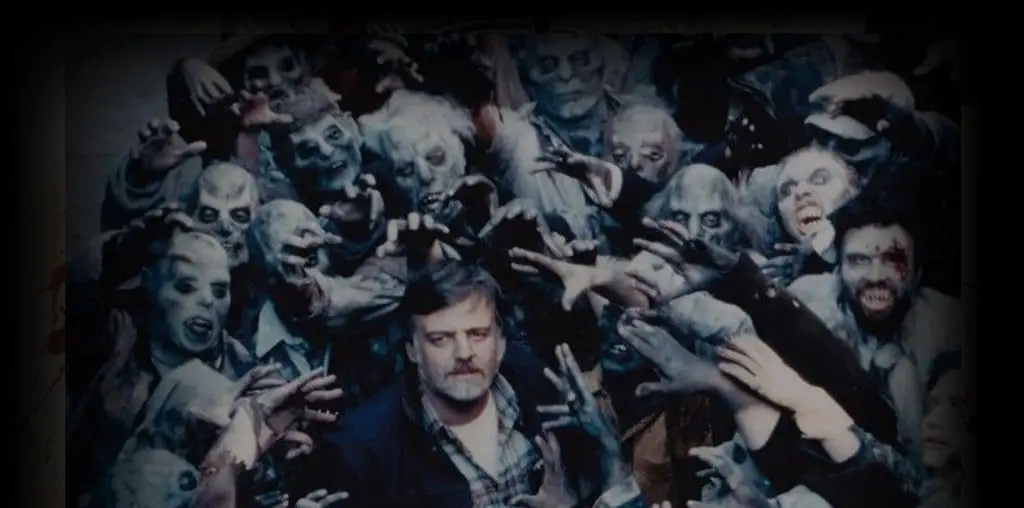
You’ve got to give Boston-based filmmaker John Farrell credit for
daring to take on projects which the average indie auteur would never venture to undertake. Farrell is best known for his audacious modern dress version of Shakespeare’s Richard the Second, which he brilliantly updated to contemporary times without sacrificing the majesty and power of the original text. His latest production is an even greater challenge: a contemporary spin on “Everyman,” the haunting English theological drama written in 1495 by an author whose name is lost to time. While Farrell’s spin on “Everyman” doesn’t entirely click, it presents a high level of imagination which demands
attention and admiration.
The eponymous “Everyman” of this film is a typical modern guy (played
by an appropriately non-descript Robert Kane) with a good job, a nice circle of friends, and a satisfied life. One day, however, Everyman is confronted on a highway by Death (depicted here as a vulturous yuppie in a blue business suit and dark shades and carrying an ominous briefcase). Everyman is informed that his time is up and his grave is waiting. Unable to bribe or cajole Death into taking a raincheck, Everyman desperately races to find someone who will join him on his pending one-way trip. Needless to say, there are few takers: the gregarious ale-guzzler Fellowship refuses to come along, and the checkers-playing Kinsmen also turn their back on him. Everyman then confronts his highly-valued Riches (brilliantly depicted as a talking PC), but Riches rudely informs Everyman that he never loved him.
Everyman then tries to find Good Deeds, who is lying alone and
forgotten in a hospital. Heartsick that he has ignored Good Deeds for too long, Everyman makes rapid amends by seeking out Knowledge (depicted as a brainy lass with a bright red backpack). Knowledge brings Everyman to a church where he receives blessings, and then discovers Good Deeds immediately recovered. Together with Knowledge, Good Deeds and a pair of new friends named Strength (who doesn’t look all that powerful, to be sure) and Discretion, Everyman sets off to meet his final destination.
As morality plays go, “Everyman” is more than a little peculiar. Imagine Bunyan’s “Pilgrim’s Progress” as an episode of “Twilight Zone” and you have an idea where this is coming from. Filmmaker Farrell deserves praise for bringing intact the lessons of this 15th century work into the 21st century. As with his Richard the Second a masterwork of profound intellectual challenge can transcend the barriers of time and geography, offering illumination for as long as there are people to appreciate its light and warmth. And similar to “Richard the Second,” Farrell has a genius for guerrilla-style filmmaker which makes remarkable use of public settings (the streets and pubs of Boston and the autumn wilderness of New Hampshire are the playing fields for Everyman’s journey).
Unfortunately, “Everyman” has something of a problem in terms of
keeping the original dialogue intact. The film’s cast of Boston-area actors are frequently not comfortable with the ebb and flow of the 1495-style dialogue and there are passages in the film when the conversation hops and flops awkwardly as the actors fail to fully embrace their lines. One might question whether it would have made more sense to update the original text into contemporary lingo rather than force the cast to ride a medieval vernacular for which some are not well-trained. (Strangely, the talking PC with its coldly mechanical voice provides the finest line readings in the film.)
But even with the hiccups in keeping the original text intact,
“Everyman” is such a wonderfully unusual production that the courage required in bringing it to the screen more than compensates for any glitches.
